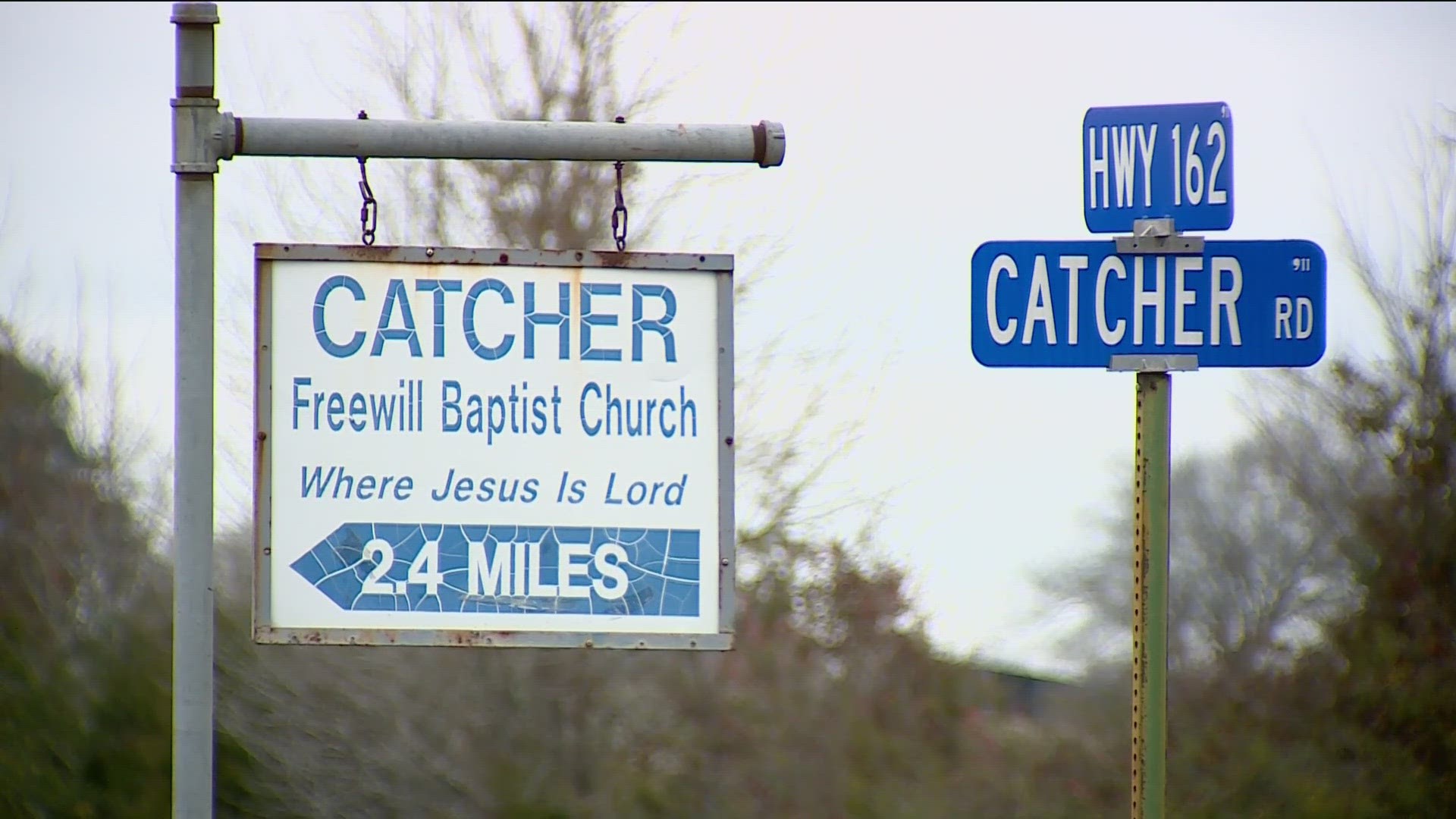VAN BUREN, Ark. — Dec. 28, 2023, marked 100 years since the Catcher Race Riots of 1923 — events that left one man and one woman dead, fifteen people in prison and drove three hundred black citizens from their homes.
On Saturday, Feb. 10, the public is getting a first look at a locally made documentary aiming to “break the silence” about the events in Catcher, made in honor of the 100-year observance.
“Catcher: Breaking the Code of Silence” is being previewed as part of an Arkansas Black History movie night at the King Opera House in Van Buren.
Talicia Richardson, a community activist and member of the team bringing the documentary to life, said one of the goals of the documentary is to encourage people to learn about their area’s history, even when it is uncomfortable.
“That’s my hope with this documentary, that it spurs more documentaries across the country of people wanting to unify for change,” Richardson said.
Richardson is joining Dr. Brandon Chase Goldsmith and filmmaker Grant Thomas with Sol Studios for the project.
On December 28, 1923, the assault and murder of 25-year-old Effie Latimer led to the events in Catcher, a rural town between Fort Smith and Van Buren.
Rumors that Latimer had been raped and murdered by three Black men angered a group of white citizens who formed a 500 person mob to punish the men.
“This led to an outcry in the community of Catcher to bring these three men to justice, somewhat foregoing due process, and as a result of that, the community pulled itself together, excluding the Black community, and decided they were going to run the Black community out of Catcher, Arkansas,” Richardson said.
It ended with one Black man dead, 15 in jail and the exodus of all of the Black families in town across the river to Fort Smith, forced to leave everything behind, including their land and mineral rights — a series of events many people today are not even aware happened.
“There seems to be a ‘code of silence’ where either a lot of people don't know about the event, or the people that do don't want to talk about it,” Director and Producer Grant Thomas said.
“A lot of times people think, ‘Oh, that's just something that happens somewhere else. It doesn't happen here,” Co-Producer Dr. Brandon Chase Goldsmith added. “If people see it as something that happens in their own backyard, then maybe you're more willing to address those issues and make sure that they don't happen later on.”
Heavily contributing to the documentary is the research of Dr. Michael Anthony, a history instructor at the University of Arkansas who did a deep dive into the history of Catcher for his dissertation.
“There was very little to go off of, and so the first thing I did was just go look through the newspapers from Van Buren and Fayetteville at the time,” Anthony said. “From there, I found more and more of this story being uncovered … We were able to find court documents and land documents to help substantiate all these claims even further and really tell the story, especially from the Black perspective for the first time.”
The documentary includes interviews with people whose ancestors were impacted by the events in Catcher, including Talicia Richardson’s husband, State Representative Jay Richardson.
‘When I watched Jay on the documentary, I was fascinated by his aha moments,” Richardson said. “…A lot of times we don't know where our place is in history, but his family has formal documentation that they stood on the side --- that really resonated with me --- they were standing their ground for what they believed in.”
Richardson and the rest of the team say their goal with this documentary is to shine a light on what happened in Catcher and similar events around the country during the same time frame.
“In 1919, Elaine happens, in 1921, Tulsa happens, in 1923, Catcher happens,” Goldsmith said. “It's not a one-off event. It happened within a context of events that were going on, not only across Arkansas, but the entire nation.”
“These are stories that need to be told, but also remember that they're not extraordinary. In many cases, they're part and parcel with the time period,” Anthony said.
Richardson said while uncovering and sharing these stories illuminates the pain of the past, it also leads to change.
“We have to understand [exclusion] before we can truly get to a state of inclusion,” Richardson said.
A short version of Catcher: Breaking the Code of Silence will preview Saturday, Feb. 10 at 6 p.m. at the King Opera House in Van Buren along with two other documentaries.
The event will also be a fundraiser to help the team finish the full version in time for the Fort Smith International Film Fest in August, when it is planned to premiere.
Watch 5NEWS on YouTube.
Download the 5NEWS app on your smartphone:
Stream 5NEWS 24/7 on the 5+ app: How to watch the 5+ app on your streaming device
To report a typo or grammatical error, please email KFSMDigitalTeam@tegna.com and detail which story you're referring to.

